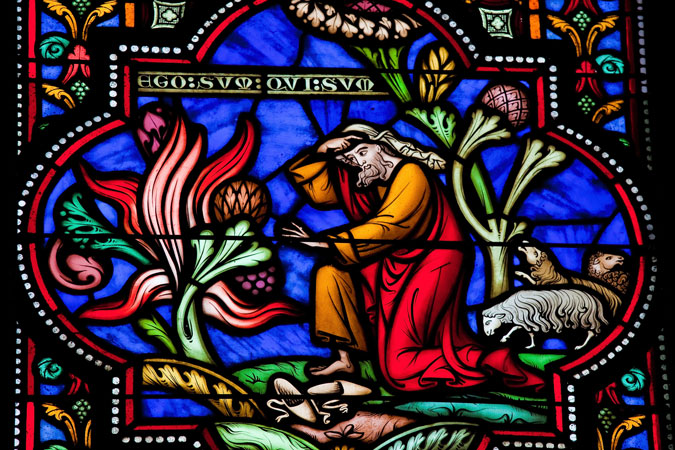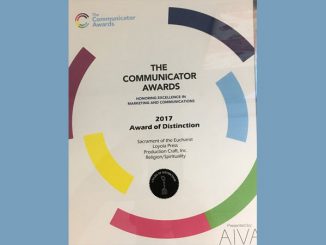
I recently received an e-mail from a veteran diocesan catechetical director who is concerned that, at a growing number of parishes in her diocese, the catechetical leader has chosen to write his or her own materials for faith formation rather than using materials produced by a Catholic publisher. Here are some of the thoughts this diocesan director shared:
As I visit parishes, I see more and more people “writing their own stuff.” What they really want to do, I think, is add very creative activities. I also think they find winging it easier than learning a program (how it flows and is connected). I don’t think they realize what all goes into developing materials. They don’t see the checks and balances in the system. I know they borrow a lot of material from megachurches, which is really not a good idea. They don’t understand what goes into developing materials—who reviews them and why. Considerations like conformity are important, but so are things like developmental stages of the reader (which I know they are not always considering).
Each parish is unique and catechetical leaders and catechists do need to make adaptations for the unique needs of their community. I have long said that, when it comes to faith formation resources, “One size does not fit all!” For that reason, it can be advantageous to develop “home-grown” resources that more effectively speak to the needs of your community.
At the same time, it is important to recognize the inherent dangers of “going solo” when it comes to developing catechetical resources—and I’m not just saying that because I work for a Catholic publisher! When I was a brash young parish catechetical leader, I decided to eschew a published curriculum/textbook and, instead, develop my own materials for children’s faith formation. While I succeeded in creating some unique and engaging approaches and lessons for my catechists, I also quickly began to realize that the process of developing truly sound catechetical materials was far more complex than I ever realized and that developing my own resources in isolation from the broader Catholic catechetical community (the bishops, the diocese, Catholic publishers, etc.) was not at all Catholic but was, instead, “congregational.”
Long before I came to work for a Catholic publisher, I learned that developing sound catechetical resources involves many checks and balances to ensure a number of things, not the least of which includes ensuring that the materials:
- are age-appropriate
- are ethnically/culturally appropriate and reflect the diversity of the Church
- are faithful (in conformity) to the Catechism of the Catholic Church (doctrinally sound as well as doctrinally complete)
- address all six tasks of catechesis
- are written in readable language
- include Catholic Social Teaching
- follow sound pedagogy and reflect Divine Pedagogy
- are truly Catholic
- are Christocentric
- are kerygmatic
- promote Catholic identity
- present an authentic Christian anthropology
- reflect the thrust of recent Church documents
- contain images and sacred art that reinforce concepts being taught
- reflect the Trinitarian structure of Catholic beliefs and teaching
…just to name a few! And, if you’re scratching your head over some of the items on the above list and wondering what on earth some of them even mean, I’ve made my point.
None of us is an island. As a Church that is truly “catholic,” we rely on a vast network of cooperation to ensure that our proclamation of the Gospel of Jesus Christ is faithful, full, and complete. Heck, every post that I write for this blog is reviewed by colleagues here at Loyola Press to ensure that it is appropriate, faithful to Catholic teaching and Loyola Press’ mission and vision, and meets the standards set forth by Loyola Press. Likewise, in our Loyola Press faith formation curriculum resources, every word and every image is reviewed, not only by a network of internal readers and editors, but also by the U.S. Bishops’ Catechism Committee on Conformity.
So, should catechetical ministers create resources to meet their unique local needs? Yes, but only when done as a supplement to resources that have gone through the rigorous review process that ensures the materials are sound, whole, complete, and faithful to the Gospel of Jesus Christ and the teachings and guidance of the Catholic Church.





Amen! I agree wholeheartedly, as I came into my new position that was a regular theme “we do our own stuff.” I am so glad someone is saying that it’s okay as long…
These are good checks and balances!!!
At the Diocesan level, I find that Parish Catechesis is the ugly step child nobody talks about or spends money on, Some DIY parish programs are at the direction of the (absent) pastor who doesn’t see the necessity of buying the Series Workbooks, Parishes that have retained their Catholic School will opt for the sane series that the school is using, We have grown student wise, from taking in the students of Parishes that have lost both Church & School facilities as a result of the “all Things New’. So, the situation in NYC is DIY or Not at all.